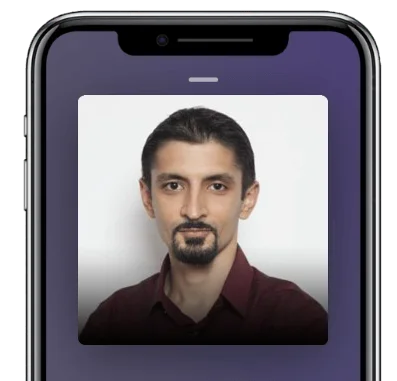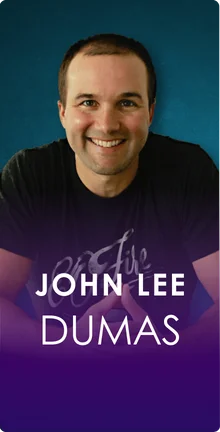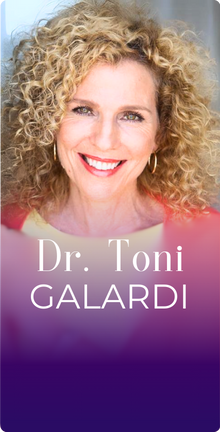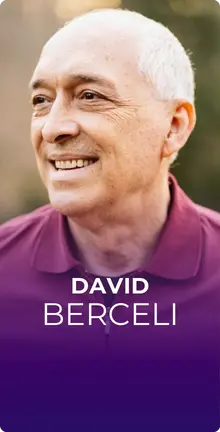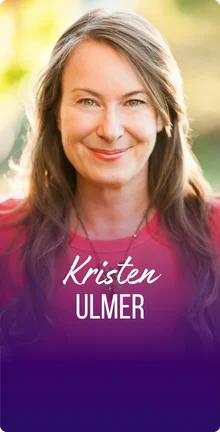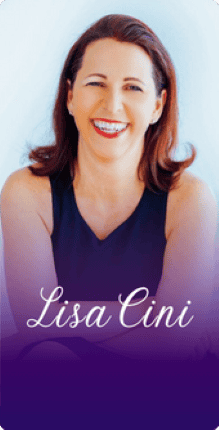In this Episode
- [00:30]Stephan welcomes Akshay Nanavati, an author, speaker, and coach, to his show.
- [01:47]Akshay describes his origin story, including his struggles as a teenager living in the US. He also mentions his definition of the beauty of suffering.
- [04:06]What was Akshay’s turning point in his life?
- [07:04]Akshay explains self-actualization and how it can achieve self-transcendence.
- [17:04]Akshay talks about guilt and how it can be empowering.
- [19:42]Stephan shares the law of karma.
- [23:11]Akshay elaborates on the importance of being aware of illusion. He also explains how death changes your perspective in life.
- [26:45]Akshay explains how fear and nirvana dance together.
- [31:43]What is Fearvana all about, and how does it solve the human condition?
- [33:31]Stephan and Akshay discuss suffering, ADHD, PTSD, and finding the balance between fear and training to get into the flow.
- [43:17]Akshay shares his experience about the tend days of darkness retreat.
- [56:14]How to use fear as a light switch?
Akshay, it’s so great to have you on the show.
Thank you so much for having me, my friend. A pleasure to be here.
First of all, I think it’s important for our listener to understand your origin story, how you ended up going to Iraq and how you ended up with PTSD and all that by hearing a little bit about your origin story and how you even ended up in the US and what struggles you went through as a teenager.
How I ended up in the US, I was born in India, originally from there. Lived eight years in India, 5 in Singapore, and then moved to the US at the age of 13. Very soon after moving here, I lived in 4 cities and three countries by the time I was 14 years old. I wasn’t very sure of myself and my path. I was very adaptable. But the shadow side of the strength of adaptability is you’re very impressionable.
Very soon after moving to the US, I got heavily into drugs, alcohol, and very self-destructive. I used to cut myself and burn myself. I still have these scars on my arm. I lost two friends to addiction and was heading down that path until I saw the movie Black Hawk Down. Have you ever seen the movie Black Hawk Down?
No, I have not.
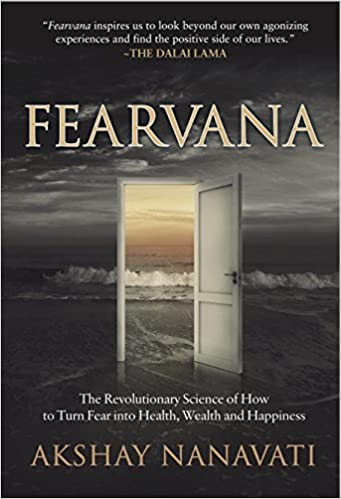
Okay, no worries. It’s a war movie based on a true story, and watching this movie and watching these scenes of men sacrificing their lives for another human being, putting their lives on the line, and that level of courage, compassion, and humanity planted something in my soul that just kind of took hold of me. I started reading book after book on the military and life in combat. Almost overnight, I decided to stop doing drugs and decided to join the Marines. I wanted to stop living this very selfish, meaningless, and worthless existence I was living at the time and start doing something that you live separate from all the politics.
In the military, you were living for the good of the group. All that matters is the men and the mission. Your well-being it’s sidelined for the importance of something bigger. It’s profoundly beautiful to live in an institution like that. I joined the Marines. It took me a year and a half to get in because I have a blood disorder that two doctors told me would kill me in boot camp. I have to get a bunch of medical waivers. Eventually got my way into the Marines.
The Marines first taught me the beauty of suffering. Marine Corps training was hard. I struggled. The best part about that was I started to discover something in the human spirit to transcend that struggle, to transcend that suffering and to tap into something greater. That was a profoundly beautiful experience. I started looking for other ways to very systematically confront my fears and push myself and explore how far I could expand those perceived limits that I had. I got into outdoor sports—from mountain climbing, cave diving, skydiving, rock climbing, you name it. Nature became my playground to explore the limitlessness of the human soul.
Then in 2007, I was deployed to Iraq as an infantry noncommissioned officer. One of my jobs out there was to walk in front of our vehicles looking for bombs before they could be used to kill my fellow Marines and me. A dangerous job, as you might imagine. But I have learned now by this point, and all these life experiences are continuing to refine my abilities to master fear, to master struggle and adversity, and live for something bigger.
But then I came back from the war, and that’s when I really struggled. I was diagnosed with PTSD, lost a friend in the war, lost a couple of junior Marines to suicide, and I was drinking very heavily. I got to a point where I was drinking a bottle of vodka a day until one morning, after five days of binge drinking, I woke up, and I was seconds away from slitting my own wrists. That wasn’t the moment that radically changed everything, and I was all good after that.
I continue to play on those edges because that’s where you find something you have never found before.
But that moment was the transition point that began a slow, rocky, brutal, hard climb out of the abyss into the work I now do in writing this book Fearvana, into helping other people transform their own relationship with suffering, with their own demons, to becoming an ultra runner, a Polar Explorer, adventurer, a mountain climber, and transcending my own demons, but more importantly leveraging them as a source of fuel to live my legendary life, into live my version of the legendary life and my path to bliss.
Wow. There’s so much to unpack there. Let’s start with you cutting yourself and burning yourself as a teenager. Help us to understand what your mindset was that took you to that place of self-destruction.
In a way, when I look back on my life now, I was the same person I am now channeling this desire to play on the edges, but in a very negative way. There was no virtue to that pain that I was seeking. Unlike when you’re running ultra marathons, and you’re doing the kind of things that I now do, you suffer a great deal. But there’s a purpose and intention to that suffering. There’s a virtue to it, and there’s spirituality to it. Back then, my friend and I were the first two in our group to start going from alcohol and marijuana to much harder drugs. That friend ended up OD-ing on heroin and died.
I was that guy pushing that edge. I was the crazy guy in my group of friends. They would sometimes see me. I took a cigar and burnt my arm. I was doing it in front of my friends, and they were like, “This dude is crazy.” So I think, looking back, it was my vehicle of expression to be the crazy guy in the group in a way to seek approval. I obviously wasn’t very sure of myself for sure to kind of get that validation to get that approval.
Also, there’s something very pure in pain. Again, now I seek it, but now I seek it in a way where there is a virtue, purpose, and intention to it. I think back then, and I was doing that with no consciousness. The seeds of who I am today and everything positive I am doing today were there. It just was channeled in a very negative way. I did a lot of dumb things, and it’s shocking that I made it out alive. If not just even for myself that, I didn’t thankfully hurt anybody else and kill anybody else as well. We did a lot of stupid things, and it was just a complete disregard for any common sense. That channeled my desire for the edge in a negative and unhealthy way.
Something I learned from studying Kabbalah, which is Jewish mysticism, is that we don’t own our bodies. We rent it. It’s a borrowed asset during our lifetime. If you really take that on board, then you don’t have any right to slit your own wrists, burn yourself, etc. I’m curious to hear your take on the concept that we don’t own our body, and we rent it.
There’s something very pure in pain. I seek it in a way where there is a virtue, purpose, and an intention to it.
I never heard that version. I’ve heard the term “Kabbalah,” I’m familiar with it, but I don’t know that aspect of it. Everybody’s got their own paradigms, constructs, and belief systems. I think it’s about finding one that serves us in the enhancement of the empowerment of our own lives as well as our ability to serve others. That’s not a belief system I had known or necessarily one I ascribed to. The way I see it, not to be cliche, it’s “body is my temple.” It’s my job to take care of my mind, body, and spirit in the healthiest way possible, not just for myself but for all those around me.
Talking about what I learned from the Marines about self-transcendence, we don’t exist in this vacuum of ourselves. We are part of something bigger. You can look at that in a very practical way. We live in a society, and you can look at that in a spiritual way. We’re part of one human family. With that said, the self-actualization that we see, if you look at Maslow’s hierarchy of needs, self-actualization being the highest one. As Victor Frankl said, “Self-actualization is a side effect of self-transcendence.” I believe that the body, the mind, and the spirit are all tools in that journey of self-transcendence and self-transcendence for the self, meaning I transcend my body’s pain.
So, for example, I go to the gym, and my body hurts, but I’m doing that for the body, right? To grit the body stronger. In some sense, you have to transcend the body for the body. You have to transcend the mind for the mind. You transcend for yourself as well as for others. That’s how my take on and not to say my take is the only take or the right take. I think there are multiple ways to view our own spiritual evolution, and that’s just mine. That’s just a way, and it’s not the way.
I like it. I like everything you said. I only recently heard this concept that we don’t own our body, and we rent it from one of my teachers and coaches.
It’s beautiful.
And it resonates with me. I know people who own cars that treat them really poorly, and there’s garbage on the floor, and they don’t wash the car ever. They let the bird poop eat through the paint and so forth. But they wouldn’t do that to a car that they borrowed from their friend.

That’s true, and that’s a very good one.
They wouldn’t treat the car the same way if they were just a steward of it for a friend or neighbor while they’re on holiday and looking after the car. That resonates with me and allows me to take better care of myself than I had. I just recently started working out, for example, after several years of hiatus. I’m back at the gym. I have a personal trainer. The last time I had a personal trainer and was going to the gym regularly was pre-pandemic. That was several years ago, like 2019.
That was three years ago.
So now I’m back at the gym. It’s been a month now. I’m feeling much better. It feels right that it’s not just my body’s a temple. It’s not even my body. I get to borrow it for this lifetime. Like, okay, I better take good care of it. That’s helpful for me. I loved everything you said about it.
I think that’s the key, finding a paradigm and a belief that serves us and the enhancement of our own love. There are multiple ways to go about that. That’s beautiful.
You mentioned Black Hawk Down as a powerful, pivotal movie in your life. I’m curious about what your thoughts are on Hacksaw Ridge. Did you see that movie?
The body, the mind, and the spirit are all tools in that journey of self-transcendence.
Absolutely. That movie touched my soul in the deepest way—that movie and the book. A few years ago, when it came out, I had just gone through a very challenging divorce. It was very complicated for multiple reasons. I ended up breaking my sobriety when that happened, and I went into some pretty dark spaces.
That movie and the book by Harold Kushner, When Bad Things Happen to Good People, helped me find my relationship with God, my own version. We all have a different relationship to what that word means—to God, universe, consciousness, whatever you want to call it. But that movie touched my soul in the deepest. One just being a veteran and the military aspect of it, of course, is unreal, what that man did. The power of his faith, the power of his belief. What he did was impossible to do. I’ve read the full story about it, and I’ve seen the actual documentary about Desmond Doss. What he did was unfathomable. That movie doesn’t even show the whole thing of what he did.
Because Mel Gibson talked about some of the things he did that were so unbelievable that Mel Gibson didn’t want to share them in the movie because he felt like people would think it was just made up, like jumping on a grenade and stuff like that to save somebody else. There’s another part where he crawled off a stretcher when he was wounded to help somebody else. Because he saw somebody else wounded and said, “Let him get on the stretcher.” And he got off the stretcher to give it to somebody else, and then he crawled his way back from the enemy lines to his own lines. He crawled his way back after he was wounded. The things he did. That level of self-sacrifice, so it’s a testament to the human spirit and God. It’s an expression of God in man at its absolute finest. It’s unreal.
That’s somebody who was unwilling to use a weapon. That’s a really important aspect of the story that somebody who is listening now and is unaware of the movie or the book needs to know. This is somebody who, according to his values, he would not hold a weapon or shoot a weapon. But he had to be on the front lines because that was his orders, so he would be up there weaponless.
It was legendary, his story, absolutely legendary. Like I said, up to this day, stories like that very much stay a part of my soul. I watch scenes from Black Hawk Down sometimes, very often actually, the scene where he is saving those people. As he’s pulling one person at a time off the ridge, he says, “Please, God, help me get one more.” He saved 75-100 people off that cliff. It’s actually incredible.
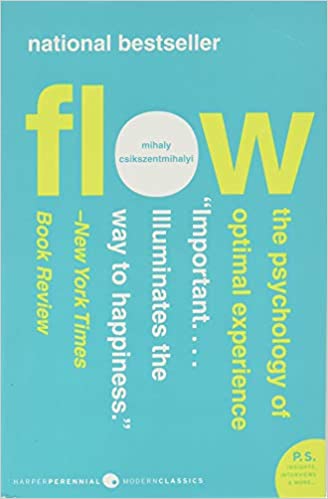
Amazing. Just amazing. What a strange thing that I would bring that movie up, right? One of the most important movies to you at a soul level, and it just happened to be playing at the gym yesterday. During my gym training, the trainer commented to me, “You know that movie?”
I’m like, “No, I’m not familiar.” I don’t watch war movies. So I wasn’t familiar with it.
He said, “That’s one of my favorite movies of all time. Let me tell you why.” What are the odds, right?
That’s the thing, once you become a detective to all the clues, you realize that this reality it’s a game where the deck is stacked in your favor. It’s a game where you’re given all the leverage. Another example, I mentioned this before we started recording. Your publicist contacted me at [22:22]. Not a coincidence. That’s an angel number. I get angel numbers all the time. I’ll get 1111 all the time or 4444 or some number that just jumps out at me, and then I get guidance on where to look it up to get the meaning of it. It’s not just a hello, there’s a purpose behind it. I get guidance around these ways of decoding the message. Nothing’s random. It’s pretty incredible.
Prior to this interview, I was watching one of your videos on your home page. I was like maybe seven minutes in, but I got exactly the messages that I needed. For example, you talked in that video about your friend dying and how you felt guilty, and you feel guilty to this day about that friend dying. That it should have been you instead. Can you elaborate a bit more about that? Then I’ll tell you what messages I received on that.
Sure. The story about that is when I first joined the unit, and it was a buddy of mine. We got very, very close. We’re the same kind of Marine trained together. We were the only two in our unit who hadn’t been to war that was volunteering to go every chance we could. Twice the Marines told us we were going, and last minute they canceled. We would have friendly competitions in the rifle range, on the physical fitness test and all of it. We became like brothers. On the rifle range, I’d beat him maybe by one point. I remember because he had to buy my girlfriend and me to drink at the Marine Corps ball one year when we had a bet about that.
And on the PFT, on the run, I’d maybe beat him by a few seconds. Not that I was a better Marine, but he was outstanding, like a far better man than I am. But I would just beat him in these few things. Why I mentioned that is because twice we were told we were getting deployed, and it got canceled. One summer, we weren’t getting the chance, so I went home to see my family in India. That summer, he did end up finally finding a unit to go with, and he got promoted to corporal. As a result, he was in a seat, he was a vehicle commander in a vehicle, and he got hit. He was in a seat that got hit with an ID, and he was killed.
In my mind, it was like, if I hadn’t taken that vacation, I would have been there with him. Maybe it should have been me that got that promotion. In my mind, it was like I would beat him by a few seconds or whatever, and I should have been in his seat, and he should have been able to come back home to his fiance and his family.
The inner journey is the most arduous and beautiful of journeys, where you can discover the purity of living in the moment. Share on XRationally I get that I could go with him, and you can go to war. Bullets fly where they fly. That’s the nature of war. You can’t control it. Like when I was in Iraq, my vehicle drove over an active bomb. It didn’t explode. I have no idea why and why did his explode. I know you can’t control those things, but I always felt guilty that I did not go with him, that I should have been there, I should have taken that vacation, and that I should have been in that unit with him. He didn’t have to go. He chose to go. He was an outstanding marine.
When I went to Iraq, I naively because, again, you can’t control what happens in war. It was as if somebody had to die, and I’d rather it be me than somebody else again. Again, you can’t control that. I came back, and I struggled with that. Because why do I get to live? I mean, I didn’t get shot. I didn’t lose any limbs. I did my job out there. I was no hero or anything like that. I did my job honorably and did what I had to do. But I certainly didn’t do anything special to earn this life. I struggled with that for a long time. To this day, there are remnants of it. I’m no longer miserable. No longer drinking. I love my life. I treasure life. But here are days when it shows up, and you just learn to use it.
I don’t like when people just say, ‘Get over things.’ There are some things you don’t get over. But it’s not about getting over it, and it’s about learning to use it. My guilt is an ally now. It’s not that it’s there every day. There was a time when it was very prevalent. Today it’s not that it’s there every day. But there are times when it shows up, and when it shows up, I’ve just learned to use it.
Guilt is not a bad emotion.
Guilt, like anything, is not a bad emotion. It can be useful. For example, when I stopped drinking and when finally finished writing my book, I had a picture of my friend Neil up on my wall, and it said, “This should have been you. Earn this life.” That guilt became an ally to do something meaningful with this life.
Okay, do you want to hear what I received about it before we met today?
Sure. I would, absolutely.
It’s time to release the guilt. The guilt doesn’t serve you. I know you’ve got a great story to tell yourself about guilt being an empowering, helpful thing. But it is a lower-vibration emotion compared to things like joy, enlightenment, and gratitude. Everyone is assigned a death date. Now, we have some choices because we do have free will. But let’s say that you get five potential death dates. So you’re on the freeway of life, and there are five off-ramps. You could take any of the five. Your friend took one of his five. When the bomb didn’t explode that you drove over, that wasn’t random, that wasn’t luck, that was angels. You have a mission that you have not completed in this lifetime. It wasn’t your time. You didn’t hit an off-ramp.
As I said, you get free will, so you can do stuff like you can take a hard right off of the freeway when there’s no off-ramp. You can commit suicide, for example. Then there are consequences. The law of karma kicks in, and it’s not good. It’s not good. I’m very glad that you did not take me out like that. I know you get some really dark times.
I appreciate you saying this.
It’s not easy. The thing that is really important to take on board is that it shouldn’t have been you. It was never meant to be you. It was always meant to be him. Now, an angel could have intervened and saved him from that off-ramp. But again, we have free will. It’s not just ourselves here on the ground. It’s our higher self, our light avatar, oversoul, whatever you want to call it, that sees above the tree line that’s up above the treetop canopy, that sees the bigger picture. And that this isn’t our only lifetime, and this isn’t our only chance to work on things like our sole corrections, in Hebrews, referred to as Tikkun.
We all are essentially creating the illusion of our reality.
That’s what I received about it. Only take what resonates for you and discard the rest. That’s great advice for any spiritual teaching or any reading that you do or any bit of advice that you get from a coach or a friend. Because not everything is true and correct, and you have to be discerning in your life to take on what is only meant for you and not take on the stuff that is not because even the most revered and righteous spiritual gurus have wrong information on purpose. This is by design because part of this video game of life is for you to discern what’s true and right and just and merciful and loving in your heart, not just according to the people you revere, respect, etcetera. How does that land for you?
I appreciate you sharing your perspective on it and what you got from it. As you said, there are different lenses of how we view the world, and we’re ultimately creating stories through the relationship experiences we have. Those stories create our reality. The way I see it is that we all are essentially creating the illusion of our reality, and you get to choose which illusion you want to abide by if that makes sense, meaning that all kinds of constructs shape our belief systems or paradigms, and we’re all creating that illusion.
I’m aware that this is a story and ultimately recognize that it is an illusion, and ultimately is when I’m choosing. Recognizing it as an illusion is not to destroy the construct of that illusion is to acknowledge which one will serve you in your path. I’m very, very happy right now. I love my life. There was a time when I was not scared of dying. Couldn’t have cared if I died. I gave away all my stuff when I went to Iraq because I was ready to go. At the time, I didn’t care if I died or not.
Today I am absolutely terrified of death because I absolutely love life, and I’m very, very happy. Even when I struggle with my demons and have the hard moments, I’ve gotten very good over time at learning to channel them in an empowering way. Not just for my own well-being, but I’ll ultimately do the work that needs to be done to help others transcend their own suffering. I appreciate you sharing your lens to that. Thank you.
Acknowledging the presence of death is one of the most powerful tools to enhance the experience of life.
You said that you fear death. What do you see as the after-death sort of experience for you? What’s on the other side of death that makes this particular life so precious? I’m asking this purely without judgment, just out of curiosity.
Roger that. Again, my take is not to say it’s right by any means, and I don’t personally believe in an afterlife. I believe this is it, and it could be wrong, and if I’m wrong, so be it. I’ll discover something on the other side. We’ll see. I’m open to recognizing these multiple ways to view the world, and I’m certainly not trying to proselytize anybody about my belief systems. But that’s my belief system, which is that I don’t believe there is an afterlife. I believe this is it, and we’re gone. With that said, if this is all I have. Look, if I get another one, then awesome, and I’ll take it. But if what I believe is right, now we don’t have another one, then that’s what makes life even more precious.
Acknowledging the presence of death is one of the most powerful tools to enhance the experience of life. I mean Buddhism, they meditate on death regularly. Many forms of Buddhism meditate on death. I’ve done a series of death meditations, and confronting your own mortality can be one of the most powerful vehicles to experience life at an amplified level. I’ve been blessed to have confronted my own mortality on many occasions, from serving in war zones and almost being killed by falling boulders in the Himalayas to the things I now do as an adventurer. You face death, and you confront it.
I’ve lost many people I love over the years. When you change your relationship to fear, often, people will say that the fear of death is not a bad thing. It’s framed as negative, the fear of death. But I think when you develop a healthy, positive relationship with fear, the fear of death can be one of the most powerful drivers in the enhancement of life. I do fear death, but I have a very healthy, positive relationship with fear.
It’s the very essence of Fearvana is about using fear as an access point to nirvana. I value my fear of death, and I leverage it. It makes me live life at an amplified and full level. It also makes me safer doing the things that I do when I go to places like Antarctica, where I lost my finger to frostbite last year. It’s fear of death that makes me work my ass off and train extremely hard to prepare to be as safe as possible. The intensity that I’m blessed I get to experience life and play on these certain playgrounds. I go playing from 10 days in darkness to going to Antarctica, to recent scuba diving into Galapagos and all these things they do. The amplification of this human experience as one of the tools that get me there is my fear of death. So I value it, and I treasure it, and I’m grateful for it. I wouldn’t want to lose it.
I used to be quite fearful of death. That was my biggest fear. I was agnostic up until age 42, so I didn’t have any real relationship with God, at least from my vantage point at the time. After I got the diksha, the Oneness blessing in India in 2012 and everything was technicolor, and it was like an LSD trip. I’ve never done any drugs, so everything was like a cartoon, and I felt this deep sense of peace and connection to the creator. Everything shifted, and then all these miracles started happening and so forth. I still felt fear of death. The fear of death did not dissipate until last year, when I had my second spiritual awakening. And then, my psychic abilities came online, and I was given a mission. Things have been drastically different since January 22nd of last year.
For fear of death, for example, and fear of, let’s say, for me, water and drowning. There was a reason for that. It helped keep me alive. I’ve lost lifetimes, as I’ve seen now at least three different lifetimes where I drowned to death. It makes sense why that remnant fear would be sticking around, untenable fear of water. I won’t even get swimming lessons in a 5ft deep pool. I haven’t tried recently, recently, like in the last year since the awakening to try that again. Taking those fears and dancing with them and taking their power away in terms of holding us back. I think it’s crucially important regardless of your spiritual beliefs.
My fear of death makes me safer doing the things that I do.
Tell us more about Fearvana. How fear and nirvana dance together and what your program and book are about, and how this all works for you.
Yeah. When I was coming out of this dark place in my life after being on the verge of suicide, I went to see a therapist in the VA, and all great people and great human beings really wanted to help. But I’ve come to learn as I was doing this at work, something that people, they’re just offering from a bad playbook. Everybody is demonized when you hear the words “fear, stress, anxiety, pain, suffering, adversity.” Nobody hears these words and thinks of them as something positive. We think of them as something negative. See, when I came back from Iraq, I was jumping with loud noises. The struggle with survivors’ guilt. I didn’t like being in crowds. I was told these were all symptoms of post-traumatic stress disorder. But the reality is they’re normal human responses to war. I spent seven months in a place where loud noises meant I could die. Inevitably, my brain was hypervigilant about those loud noises. It’s not a disorder, and it’s a normal human response to war.
So yes, I had symptoms of post-traumatic stress, but post-traumatic stress is not indicative of post-traumatic stress disorder. Those are two very different things. When you release the identity of disorder, the label of disorder, suddenly you can accept the isness of that post-traumatic stress and choose what you do with it, to transcend it, to leverage it as a tool for post-traumatic growth. The essence of Fearvana is not just combating the demonization of fear but combating the demonization of anything under that umbrella, any sort of sibling of fear—stress, anxiety, all of those things, and combating the demonization of suffering as a whole and recognizing that these are not bad. There’s no bad or good emotion. There’s just an emotion. There’s no bad or good experience, and there’s just an experience. It’s up to us to decide what we do with them. If you choose to, any motion, any experience, can be profoundly beautiful.
Anything worthwhile doing will be hard, and that’s beautiful.
Fearvana, first, was just my own work of doing years of research in neuroscience, psychology, and spirituality and taking all this wealth of life experience of being blessed to have lived and recognizing that fear was not the enemy. The greatest things in my life I’ve done and to this day that I do, have absolutely terrified me. I would never stop seeking it. It’s like evolution. The bliss happens in the pursuit of that, in the pursuit of some struggle. Anything worthwhile doing will be hard, and that’s beautiful.
Fearvana is about helping people. Other people now develop that positive relationship with fear, suffering, and struggle. To learn to smile in the face of it and then leverage it and turn it into their own path, whatever it may be. To find, live, and love what I call their worthy struggles. We all have a worthy struggle. It might be writing a book, and it might be skiing across Antarctica, it might be climbing mountains, it might be building a business, raising a child, or playing chess. Whatever it may be, we all have our own worthy struggles. And Fearvana is designed to help people in the book. The work that I do is designed to help people transform their relationship to fear, to smile on the face of it and then use it to find, live, and love their own worthy struggle, whatever it may be.
At the core of it, what we do is, I believe, solving the greatest problem, the human condition, which is our negative relationship, is suffering. Because if you think about it, what do we ultimately seek at the core of it? If you dig deep beneath the whys of all the surface-level stuff of the house, the car, the relationship, it’s to be happy, fulfilled, inner peace, whatever word you want to use. Semantics aside, some version of that. If you view suffering as beautiful, it becomes part of the adventure in achieving that. If you view suffering as negative, it becomes a barrier to that.
And that’s fundamentally what we want to do, is to help people smile in suffering, and as I like to say, to suffer well. Once you do that, you can find bliss on the journey of life, which is ultimately everything. You can find bliss whether life punches you in the face or whether you’re pursuing something challenging. The struggles of it become beautiful. They become part of the adventure. They become an experience worth having, not an enemy to avoid. That’s what I continue to do with my own life. And I, through my work, help others do as well.
You can find bliss whether life punches you in the face or whether you’re pursuing something challenging.
Wow. I love what you said about PTSD and the label of it versus experiencing post-traumatic stress. They’re different things, and one has an identity associated with it, and one is just a suffering state that doesn’t define you. What occurs to me when you’re talking about that is this happens a lot to kids who are labeled with ADHD or ADD. That’s a disorder. The “D” is disorder. That’s a terrible label that doesn’t serve them. Instead, they could see it as a superpower.
I interviewed Dr. Ned Hallowell, one of the world experts on ADHD, and he describes ADHD as having a Ferrari engine but bicycle brakes. It’s not that you lack attention; it’s that you have an overabundance of attention. You don’t know how to direct it. Wow, what a fabulous interview. What a genius man. He’s a prototypical example of somebody with ADHD, but he has turned that into something that has been his biggest superpower and gift.
It’s amazing.
My wife says that the gift, sometimes the bow is on the bottom, so we don’t see it. That occurred to me when you were talking about the label and disorder.
I fully resonate. It’s amazing. It’s a great take on it. I like the analogy. I never heard that one before as well.
I also want to acknowledge what you’re saying about suffering, not necessarily being negative. Just like ego. People really bad mouth ego as being a terrible thing. God created the ego for a reason, for a purpose, just like flipping the duality of dark and light, or the daytime and nighttime, or hot and cold, or sunshine and rain. You can’t appreciate one if you don’t have the other. Suffering gives you that dichotomy. What a gift to have that, to be able to experience that and to be able to have that insight that you wouldn’t normally have. I don’t malign suffering. I do see that we get to choose between suffering states and beautiful states all the time. Everything is a choice. All day long, we get choices, and we also get thrown into circumstances that push us to make a choice.
When life punches you in the face or you experience challenges, you can transform these experiences into valuable, transformative moments, and not enemies to avoid. Share on XSomething I heard a long time ago, maybe about ten years ago. I’d love to hear how you feel about this analogy that the universe drops feathers on your shoulder, and these are all nudges that invite you to make a change. A lot of people will ignore the feather, and then the feathers turn into bricks. When the bricks fall on you, those hurt. Some people ignore the bricks, and then the Mack truck comes. You can’t ignore the Mack truck. Sometimes it takes us out. But always, it is a huge upheaval and a wake-up call that cannot be ignored any further.
If we don’t get suffering, then we don’t get bricks, and we don’t get the Mack truck, and we don’t get the awakening or the gift of insight and choosing to live a different life and be a different way.
Absolutely. Suffering is a beautiful vehicle to our next awakening as well as to self-transcendence. That’s why I continue to seek it on every edge I can find. Mentally, physically, spiritually, and emotionally,
Are you familiar with Steven Kotler’s work around the Flow States? The Rise of Superman?
The Rise of Superman, a long time ago as research for Fearvana. A great book. I learned a lot from it.
I remember some of the Flow Triggers. I think there’s like twenty-something of them. One of them is being in a dangerous situation. Let’s say that you’re doing heli-skiing. There are no ropes or any kind of safety. It’s just you and the mountains. You have to be in a flow because everything’s at stake. That trips you into a brain wave state of flow state. I’m curious to hear about your experiences with getting into flow.
I put a lot of similar playgrounds, so you definitely get into it. Like last year, I was climbing Denali, and it was on the 16 Ridge. It’s such a thin ridge line, and you’re putting one in front of the other. On each side of you, there’s like a thousand-foot plus drop. Your mind has nowhere to go but that next step in front of you. Very much puts you into the flow. I’ve been blessed to experience a lot.
Because risk is a relative thing, walking up to a girl in a bar for me is more terrifying than climbing a mountain. It’s just finding that he also talks about it. This was all births by “the father of flow,” Professor Mihaly Csikszentmihalyi, who wrote the book Flow: The Psychology of Optimal Experience, talks about finding that fine balance between this connectivity being challenging enough but not too hard. You’re finding the balance between it not being too easy or hard. That balance is where you find that state. Because if it’s too hard, you’re just going to either activate too much fear and just go into panic mode. If it’s too easy, it will be boring.
Finding that playground, I call it the “zone of Fearvana.” When I say the balance between the level of fear and your level of training in that area and playing in that area, that area is different for each person. But only through self-awareness and action can you figure out where your area is and continue to expand that zone. It was a time in my life when I used to be scared of ferris wheels. Not even roller coasters; ferris wheel scared me. And then today I do a lot of dangerous things. But that didn’t happen overnight. I continuously stepped into the zone.
Again, back then I didn’t do this consciously, but when I was doing it now looking back on it, stepping into the zone, pushing one step at a time. I remember driving to this opposite drop zone once when I was skydiving, and there was a big party hoping it would rain so my dive would be canceled. It didn’t rain, and I went. I leaped, but I was terrified. You step into that, and then it expands and expands and expands. The whole point of expanding is not so you rest in it, but then you can push further.
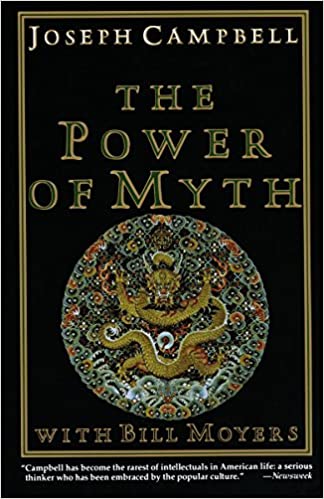
Because the further out you go, the more discoveries you find, and the more you tap into the treasures of the human experience, of the human condition. That’s the point. Until death, there’s always more evolution to be had. Continuing to play on those edges to find the treasures.
What’s it like to do ultra running? I used to be a runner, but not ultra running. I’ve never even done a marathon. But in high school, I ran track and cross country. Help set a school record in the 4×800 meter relay. I ran a 2-minute and 6-second 800 meter, which is pretty good. I’m curious to hear what it is about ultra running that is so awesome and interesting for you. And it’s not just marathons, or it’s not just the shorter distances or like running 10Ks or something like that.
One of the things I love about long-distance endurance sports, as opposed to whether it be shorter runs or even let’s go to the gym, is the extension of that time factor. You’re going into new spaces. Firstly, the suffering is quite arduous. You go deep into the pain cave the longer you’re out there. You’re navigating that time element and have that relationship with time and have that mental strength to continue.
What I love about it is how far it pushes you beyond yourself, and because of that extended period of time, it’s not just, ‘Oh, I know that I have only suffered for 20 minutes on high-intensity interval training.’ I’m not knocking high-intensity interval training. I do it as well. It’s a beautiful thing. But you know it’s only going to be this much. Here, it’s extended. You have to navigate that. I love the mental aspect of it.
Because of that, a long run or a long polar expedition or mountaineering becomes a microcosm for the entire human life. In that one condensed period of time, you experience intense highs and intense lows. The intensity of that, you’re experiencing literally like a lifetime’s worth of experience in this short, condensed period of time. That’s beautiful. You get to live multiple lifetimes when you think about it that way. I love the challenge of it. I love the suffering of it. I love the spirituality of it.
One of the things I love about long-distance endurance sports is the extension of that time factor.
That’s what inevitably led me from ultra-running to polar exploration. Polar exploration is like out of all the things I’ve done, nothing offers as much suffering as polar exploration. As one explorer said, he said beautifully, “Polar exploration is once the cleanest and most isolated way of having a bad time, which has been devised.” I could not agree with it more. It is absolutely brutal, but the draw of it is that suffering. It’s not suffering in itself. Same thing for the draw of ultra running, but this is taking it to another level. Suffering is the means but not the purpose. The purpose is that thing that suffering gives you.
That’s a doorway into the human soul. The doorway you cannot open unless you go into those phases. The analogy I would like to say is you have to battle the dragon to get the treasure, but the treasure is on the other side of that dragon, and you have to go through that dragon. The greatest dragons we’re ever going to fight are the dragons within, in the mind, in the spirit—those dragons. When you do these long-distance-type pursuits, you fight those dragons, and you fight them hard. And sometimes, they will crush your soul. Even in the world of darkness, you have to find one glimmer of light to keep fighting. That glimmer, when you tap into it, in the world of darkness, you cannot put words to what that is like. You’re tapping into something that is, to me, the very essence of the human spirit at its finest. You’re tapping into God.
Awesome. What you’re saying reminds me of a quote from Joseph Campbell. The Power of Myth guy. I love this quote. Essentially it’s just, “It is by going down into the abyss that we recover the treasures of life. Where you stumble, there lies your treasure. The very cave you are afraid to enter turns out to be the source of what you are looking for. The damned thing in the cave that was so dreaded has become the center. You find the jewel, and it draws you off.”
That’s beautiful. I love that. Thanks for sharing. That’s awesome. I love Joseph Campbell’s work.
I know that you had done ten days in darkness and silence. That wasn’t in the Vipassana meditation, was it? Tell us more about that.
Sure. I didn’t know a darkness retreat was the thing. I was actually going to go to a Vipassana, which is a 10-day silent retreat. While researching that, I stumbled upon the concept of a darkness retreat. What drew me in is that in the Vipassana, your eyes are still open, you’re still seeing the world, and you’re still interacting visually. But when you shut off the visual sense, one of the primary ways in which we engage with the world, you have nowhere external to go. Even at the simplest level, if I can see, I can see that’s a wall, a door, and then my mind has somewhere outside myself to go.
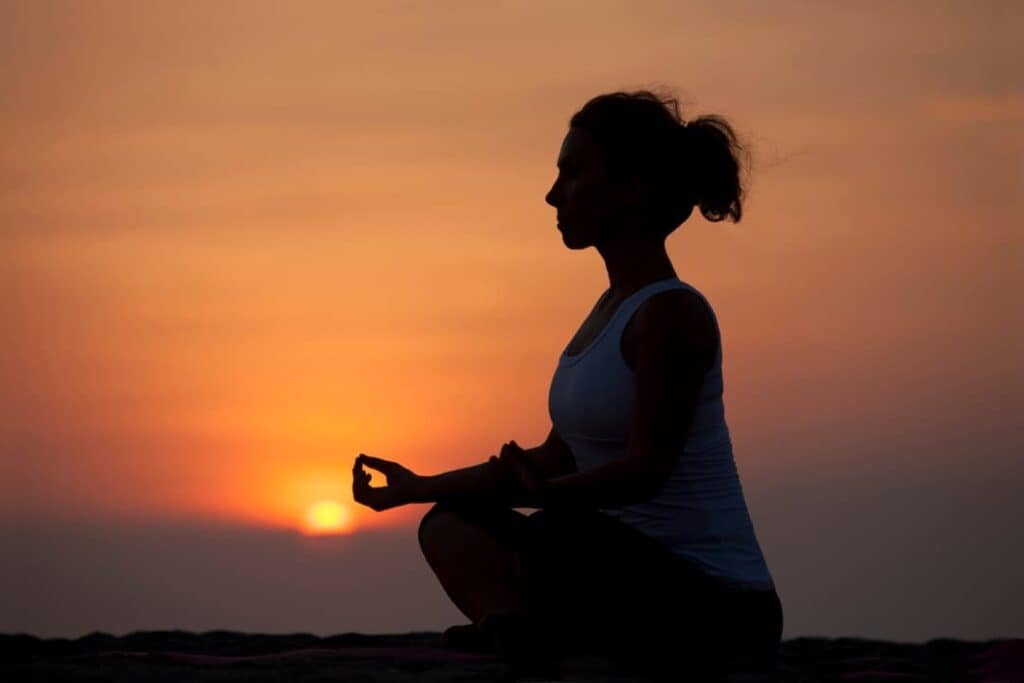
In the darkness, you have nowhere outside yourself to go. So you’re forced to go within. That journey will take you to places in your own soul that you’ve never gone to before. When you open those doors, you don’t know what’s going to come to those doors. The 10-day darkness retreat was the second time I’d done a darkness retreat. The first time I did seven days. The second time, which was just a few months ago, fairly recently, I did ten days. Just again wanted to go deeper. But you’re finding things you’ve never found before, and you have to face those things. What’s going to come out is going to be heavenly, but it’s also going to be dark. It’s also going to be hell, and you have to face whatever shows up.
But as Carl Jung said, “Until you make the unconscious conscious, it will direct your life, and you will call it fate.” Here, you are bringing those things to the surface. Whatever those things buried to me unconsciously, the things we do everything to avoid confronting. Because as Carl Jung also said, “People do anything, no matter how absurd, to avoid confronting their own soul.” I mean, our world could not be a more clear example of that. We do everything to distract ourselves from ourselves. Here, you have nowhere to run. You’re bringing that stuff to the surface, and it’s hard. It’s a challenging journey. It’s a brutal journey. But it is such a rewarding and fulfilling journey, what you find in that. Now you can bring the surface and do something with it instead of letting it control you.
That’s why I went back for the second time. It’s not easy, obviously very, very hard, but it is a profoundly beautiful experience. You also start to see lights in the dark. Because your brain, they say, starts to release DMT. You see lights in the dark that are as real as anything else. The brightest light I’ve ever seen was sitting in the dark. It was beautiful.
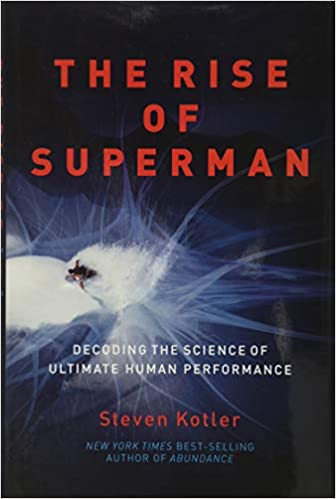
Amazing. Have you ever done DMT?
I have not done ayahuasca or DMT. I choose to seek it through the darkness, and I find that personally to be more valuable and more fulfilling.
I’m with you on that. I don’t really have any desire, any call to do any plant medicine or substance to help open doorways to the other side of the veil. I just work on getting there through intentionality, breathwork, prayer and so forth, and it works amazing. I think you’re going to get thrown for a loop if you’re making some plant medicine journey. Let’s say you don’t get the right shaman, or you’re spiritually not ready for it. You could get a kick in the pants.
I agree. I know a ton of people who’ve done it. A lot of my friends and some people made a really big difference. Ultimately, again, as I’ve said before, find your path. My take on it, I think there is value to it. I think people can benefit from it. I know people who have. But I feel like collectively, as a society, we’re looking for shortcuts in every way, even now, to enlightenment because you can get the same experience. I know somebody who’s done all the psychedelic things, the DMT, ayahuasca, this kind of thing. But they also did these seven days of darkness, and they got more from the seven days of darkness than they did from all those things.
Even from my experience, a little bit, I’ve done MDMA and stuff like that. I got more from the darkness. But the darkness, you have to earn your right to that doorway. Sitting in 10 days of darkness is much harder than popping a pill, literally or figuratively speaking, whatever the thing may be. We just have to be careful looking for shortcuts even to enlightenment. But if you go into ten days of darkness, I think it’ll be a deeper, more profound journey from my own experience. But again, it’s not the only way. If the other way helps and you find some beauty in it, awesome.
Yeah, awesome. You mentioned earlier in this conversation how just the illusionary nature of reality. I’d love to get a better understanding of that from your perspective since you also believe that this is your one shot at life. But yet it’s also an illusion that we’re living. In one way, I equate it to the holodeck on Star Trek Voyager. Where you can program in the parameters of the holodeck program with your belief systems and positive expectancy and faith and trust in the creator and all that, I’d love to hear how this idea or belief in the illusionary nature of reality and that this is your one shot at life. How do those work together for you?
Sure, yeah. Let’s start by breaking down the way when I said the illusory nature of reality at the simplistic level. Let’s say I see a tree out there. I look at the thing. I see it as a tree. I see it’s green. What makes it a tree? It’s because I’ve learned from a young age that that thing I see is called a tree. That color that I see is called green. Those are constructs attached to my lens of reality. How we view reality is a series of constructs that have been shaped over time through genetics, life experience, our parents or belief systems. Everything has made us into who we are today.
Everybody's got their own paradigms, constructs, and belief systems. It's about finding what empowers us and grows our ability to serve others. Share on XNow I can recognize that, but then the question becomes, what’s beyond the construct? Can I see a tree and not see it as a tree? Can I see green and not see it as green? And if so, what’s there? It’s really hard to do because that concept is very embedded in reality. But there are moments of transcendence. And the good example of this is seeing a white light in darkness where literally the brightest light I ever saw was sitting in a dark room. Where suddenly, you’re beyond constructs when you’re in pure experience. The inherent nature of that pure experience of that minuscule moment beyond any construct cannot be described because the second I put words to it, I’m attaching conceptual thought to it. The nature of words, it’s all conceptual thought. Everything coming out of my mouth right now is based on conceptual thought. It’s based on a contract that I’ve learned through life experience.
These are not bad. The key is to recognize they’re not bad. It just is. There’s value to this. When I recognize that everything about how I see this world is an illusion in that sense, the key is also playing, like acknowledging the duality. If I jump off a building, I will still fall and die. If I put my hand on fire, it will still burn. You have to acknowledge that the duality of it coexists. I can acknowledge the illusory nature of reality while acknowledging the pragmatic nature of reality. But stepping into the illusion and recognizing each of these things is a construct.
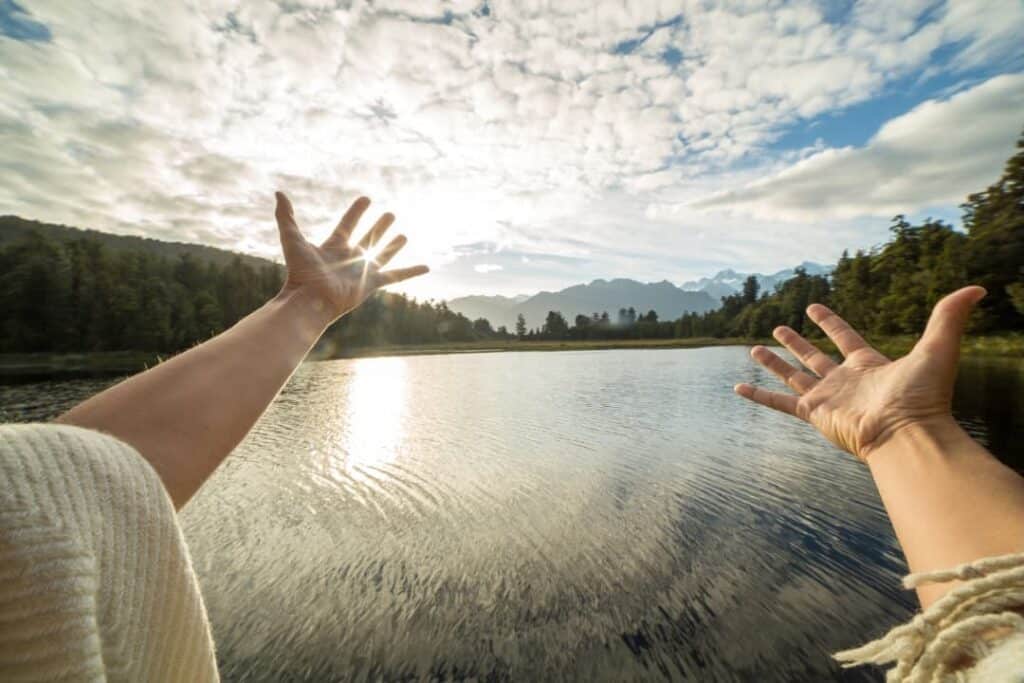
The simplest way of that tree is green as a construct to the deeper way of how I view reality. What do I believe about myself? What do I believe about the world? What do I believe about my goals? About everything. The very nature of my belief is a construct. But the problem is, where people struggle, we don’t see it as a lens. When you engage with reality, you’re not engaging with reality as it is.
Think of it like this. You’re wearing red glasses, and everything you see is going to be red. Even if that thing is green, it’ll look red because you have red glasses. Those “colored glasses” is your perspective, your paradigm, it’s your construct and your belief systems of the world. What stops us is we, often human beings, don’t see it as a construct. We see it as real. I know a lot of people who will say that ‘No, no, this is how it is. That’s not my belief in the thing. That’s real.’ That hinders progress. Let’s leave it at that, putting it mildly.
The value in recognizing all constructs as constructs is then choosing what you do with them. It’s not to say that I eliminate constructs. It’s to up-level the construct. For example, another good example of this is in the scene in The Matrix, where that kid is teaching Neo how to bend the spoon. He says, “There is no spoon. It is not the spoon that bends, and it is your mind.” The acknowledgment that there is no spoon or the ability to bend a spoon implies there is a spoon to bend right. The point of this is to say that you’re not removing constructs. You’re up-leveling your constructs to create one that is most valuable to you.
We had a very deep conversation with my friends the other day. How do you answer the question, “Who am I?” The existential question of human experience, right? Who am I? There’s no right answer, but one answer that I was saying was an answer, is that I am the creator of my own illusion. I acknowledge that everything is a construct, everything is an illusion, and I’m going to choose which illusion I want to abide by. That illusion becomes my reality.
That’s how I view the illusory nature of reality. And then, I’m going to choose which one is most valuable to me and most valuable to my goals and most valuable to the collective society around me. Again, not to say that everybody has to abide by my perspective of the world. Not at all. Everybody creates their own as not harming any other people. You do you. I’m choosing an illusion that will most serve me. That’s how I play with the illusory nature of reality, which is to recognize first that it is all an illusion. By recognizing it, I can choose which one to abide by. And then these solutions help me live a better life for myself and others.
You have awareness.
Awareness, exactly. It’s mental awareness. That really is. It recognizes that all of this is a thought. You don’t attach yourself to the thoughts and feelings as real. You recognize them, and this is a thought, this is a feeling, this is an experience. But I’m not my thoughts, I’m not my feelings, I’m not experiences. I’m the thinker of my thoughts, I’m the feeler of my feelings, and I’m the experiencer of my experiences. That’s going meta.
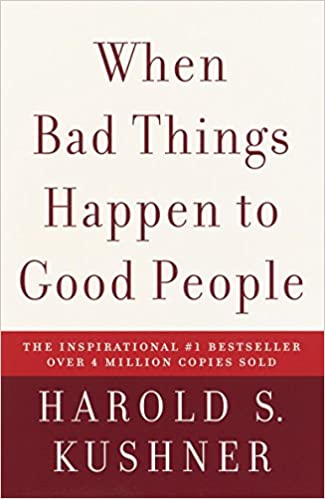
That’s recognizing the space between what is and whom you choose to be outside of what is. Once you recognize that space, then you can choose what you do with that space. I’m by no means perfect at it, but I’m pretty good now at recognizing there is a space and then choosing what I want to do in that space.
One of the most profound things I learned in India from the Oneness monks was that we are receivers, like FM receivers. The thoughts that we receive are not ours, but they are based on the radio station that we tune into. By having a higher vibration, we tune into higher-quality radio stations. Lower vibration, a place of hopelessness, dread, apathy, etc., invites lower-quality thoughts into our consciousness. None of those are ours. Most thoughts are not our thoughts. The vast majority are not our thoughts.
For me, that takes a lot of the pressure off. If I get some self-defeating thought or some creepy thought or some lustful thought or whatever, it’s like, oh, that’s not mine. I just sent it to the light.
Awesome, yeah. Love that.
I learned this one just recently from Sam the Illusionist, who was a guest on this podcast. He was channeling, and the beings he was channeling described were so profound and beautiful. It just really resonated for me. And it’s this that we’re not living in the present moment when we think we are when we’re taking in information through our five senses. Supposedly just living in the moment. It’s actually the past. It’s like an echo. If we want to get into the real present moment, we have to go inward. We shut out all the sensory inputs coming in from the five senses. We go inside as you did with those ten days of darkness, and there lives the present moment. I just thought that was really profound. What do you take from that?
Thank you for sharing that. I think it’s beautiful. I do like that inner journey, and I think it is the most arduous and the most beautiful of journeys, and that’s where you find something in the pure stillness and the pure ease of experience, the pureness of being in the moment. I think it’s a duality. Look, again, not to say my way is right. I do not disagree with this. Each person has their own take. But I think tapping into the five senses can bring you into the present and bring you into stillness. Like I often use that as a way. Let’s say my mind is wandering because I’m nervous about a hard training day. Or my mind is thinking about a million things on my to-do list. A simple way to shut that off is just to bring myself back to the five senses. I use the five senses as a vehicle for the stillness of mind and to bring myself into the now when I can shut this off and be in myself fully.
This is not to say that the inner journey is not being now. I think it’s a duality that can coexist, is my take. I often use the five senses as a way to bring myself into the moment. When I find my mind wandering with the million things that sometimes it may wonder with. I use five senses to bring myself back into this, into presence, and then it can be a doorway to go deeper. Sometimes I don’t have the bandwidth to go deeper because, let’s say, I got work to do or something, I got to go to work or something to do during the day. Other times I’ll go venture off and go to 10 days of darkness. They both can be an access point to the ease of your experience.
Suffering is a beautiful vehicle for our self-transcendence. Counterintuitively seek suffering to experience exponential growth. Share on XYou use the five senses as an access point to go inward, which makes a lot of sense. I hear a lot of folks talking about that, like focus on the breath, focus on the sounds of the birds or whatever in the background, find a focal point, and just let it be. Don’t get hung up by it. It just simply is. And that gives you that awareness of your awareness that you can then sync it to.
This is another little trick or hack that I learned recently. This one’s from Jason Campbell, the meditation musician. It’s amazing. If you’re busy in your thoughts and your mind is just going 100 miles an hour, you could just have the thought. I wonder what my next thought will be. It’s like a light switch. It shuts off all the chatter, all the monkey mind. I wonder what my next thought will be. It’s really cool.
All right. If our listener or viewer wants to work with you, wants to read your book, want to go through some of your programs or just follow you on social media and some of the articles, where should they go?
You can find me on Instagram, which is the primary social media platform I use, @fearvana. Book Fearvana is available on Amazon and Kindle, Audible, and paperback. All the profits go to charity as well as the books. We support many beautiful causes. You can find me at fearvana.com, where we have training on the 25 different ways to navigate the pain cave, whatever physical, emotional pain, or spiritual pain you might be struggling with. Different “weapons” to help you navigate that. That’s where you can reach out to me to go deeper into various ways. I train people to find and live their path of Fearvana.
This was fabulous. I love the conversation, and I love how vulnerable you are and how much you want to serve and add value to people’s lives. Thank you for all that.
Thank you so much for having me. It’s been a pleasure.
Thank you. Now listener, go out there and make a difference in the world. Live your best life, and we’ll catch you in the next episode. I’m your host and Stephan Spencer, signing off.
Important Links
Connect with Akshay Nanavati
Books
Film
People
Previous Get Yourself Optimized Episodes
YouTube Videos

